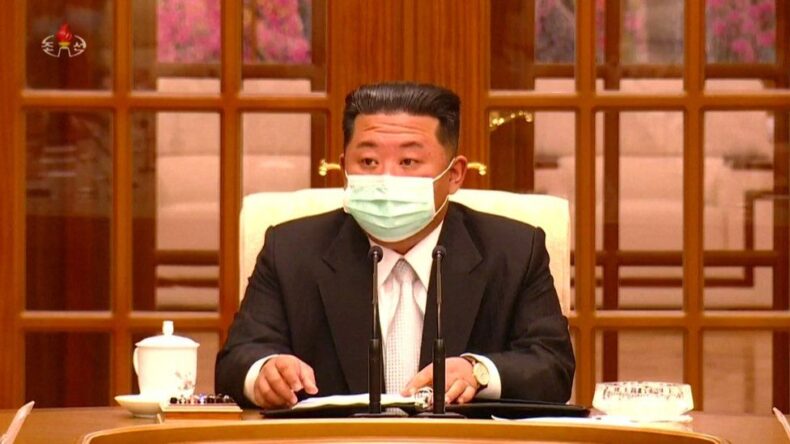A North Korean province is encountering an acute enteric epidemic and the center has dispatched crews and epidemiological investigators for medical aid.
North Korea: On Sunday, state media reported that North Korea has dispatched medical crews and epidemiological investigators to a province battling the outbreak of an intestinal disease.
Around 800 families, which are suffering from what North Korea called an “acute enteric epidemic” have received aid in South Hwanghae Province so far.
Enteric refers to the gastrointestinal tract and South Korean officials say it may be cholera or typhoid.
This new outbreak has further strained the isolated country as it was already battling its first wave of COVID-19 infections. It is also encountering major food shortages.
On Sunday state news agency KCNA detailed prevention efforts, including quarantines, “intensive screening for all residents,” and special treatment and monitoring of vulnerable people such as children and the elderly.
A national “Rapid Diagnosis and Treatment Team” is working with local health officials, and measures are being taken to ensure that farming is not disrupted in the key agricultural area, KCNA said.
According to a report, the process of disinfection is being carried out to ensure the safety of drinking and household water. Sewages and other wastes are cleared.
New Intestinal Virus in North Korea
An infectious intestinal Virus was reported in the farming region on Thursday, putting further strain on the isolated country as it battles chronic food shortages and a wave of COVID-19 infections.
State news agency KCNA said that Leader Kim Jong Un sent medicines to the western port city of Haeju on Wednesday to help patients suffering from the “acute enteric epidemic” without giving the number affected, or identifying the disease.
“(Kim) stressed the need to contain the epidemic at the earliest date possible by taking a well-knit measure to quarantine the suspected cases to thoroughly curb its spread, confirming cases through epidemiological examination and scientific tests,” KCNA said.
An official at South Korea’s Unification Ministry handling inter-Korean affairs said the government is observing the outbreak, suspected to be cholera or typhoid.
Professor Shin Young-jeon at Hanyang University’s College of Medicine in Seoul said “Intestinal diseases such as typhoid and shigellosis are not particularly new in North Korea but what’s troubling is that it comes at a time when the country is already struggling from COVID-19”.
The outbreak took place when North Korea was previously encountering its first outbreak of COVID-19 infections. Last month, it declared a state of emergency amid concerns over a lack of vaccines and medical supplies.
Haeju in South Hwanghae Province is North Korea’s key agricultural region. Concerns are raised over possible impacts on the country’s already dire food shortage.
Eom Joong-sik, an infectious disease expert at Gachon University Gil Medical Center said that while the possibility of infections spreading through crops appears low, the key will be disinfecting water supply sources as the disease likely to be waterborne
North Korea reported 26,010 more people with fever symptoms on Thursday, with the total number of fever patients recorded across the country since late April nearing 4.56 million. The death toll linked to the outbreak is 73.
Pyongyang has been daily announcing the number of fever patients without specifying them as COVID patients, apparently due to a lack of testing kits. Experts also suspect underreporting in the figures released through government-controlled media.
The North has said the COVID wave has shown signs of subsiding, but the World Health Organization cast doubts on Pyongyang’s claims earlier this month, saying it believes the situation is getting worse.












